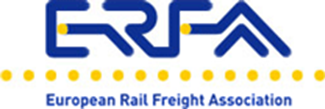10.09.2024

On the 10th of September 2024, FEPORT participated in the ERFA event "Delivering for Rail Freight: 2024-2029," held in Brussels. The event brought together key stakeholders from the rail freight sector to discuss the future of rail freight in Europe, focusing on two main pillars: financing and legislation.
During the event, the new ERFA Manifesto was introduced, providing a roadmap for European policymakers to enhance the rail freight sector. The discussion emphasized the need for a unified European approach, less reliance on national specifications, and a new mindset to drive modal shift towards rail.
Key takeaways from the event included:
Financing:
- Infrastructure: A priority was placed on completing the TEN-T network with a focus on optimizing and compensating financial constraints related to temporary capacity restrictions (TCRs).
- Technologies: The deployment of ERTMS (European Rail Traffic Management System) was emphasised, while the introduction of operational technologies, such as Digital Automatic Coupling (DAC), should remain optional.
- State Aid: Calls were made for state aid to be fair, transparent, and accessible to all operators, with indirect support such as reductions in track access charges (TAC) being favoured to benefit railway undertakings.
Legislation:
- ERTMS: Reliable deployment plans should be established, minimizing specification changes and implementing standardized testing specifications.
- Track Access Charges: There was a call for a multiannual, supportive framework for track access charging, aiming to reduce disparities across different transport modes.
- Train Drivers: Facilitating language requirements at border sections was discussed, with a mid-term goal of adopting English as the standard language on freight corridors.
The manifesto was well received, with consensus that more European cooperation is needed to address these challenges.
Source ERFA and FEPORT













